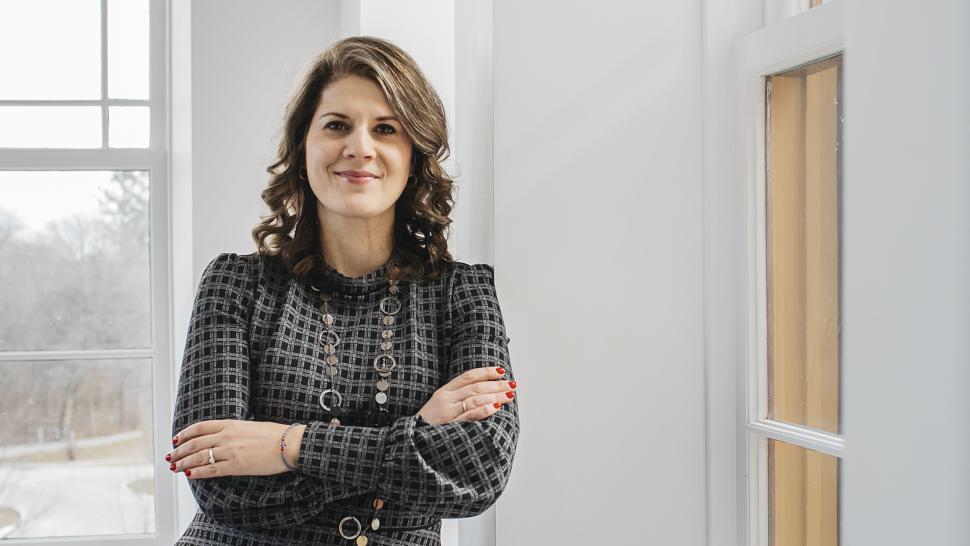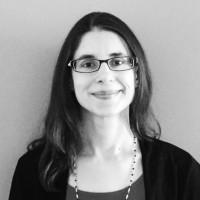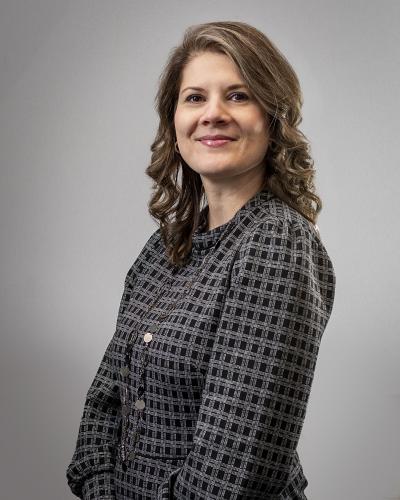
After two decades working in the education field as a Montessori teacher and tutor, Natalie Stevens felt it was time for a change. She needed a new challenge.
Stevens decided to enrol in Humber’s Teaching English as a Second Language graduate certificate program.
“Humber offers an excellent, well-rounded program and it provided a good foundation in e-learning technology,” said Stevens, who is now an instructional designer for an e-learning company.
Her experience at Humber College prepared her to write and design courses for adults and children, ranging in topics from hiring in a virtual environment to the nighttime sky.
Even before the COVID-19 pandemic, the TESL program offered a comprehensive class in technology. 
“The most challenging part of my job is coming up with interesting themes and ideas for topics that are not always the most interesting, so I do a lot of brainstorming and research. The class was excellent preparation," she said.
From observation to action
The prerequisites for Humber’s TESL program are a Bachelor’s degree program and English proficiency. Students aren’t required to have a teaching background like Stevens.
The full-time, two-semester program prepares students to teach reading, writing, grammar, pronunciation and conversation. Students learn about pedagogy, methodology and classroom management from faculty members who also work as mentors and advisorsto the students.
One of the program’s unique features is its comprehensive and mandatory 50-hour practicum.
TESL is part of the Faculty of Liberal Arts & Sciences’ English Language Centre, which offers several programs aimed at non-native English speakers.
In the first semester of TESL, students spend time observing in the English for Academic Purposes (EAP) program.
Later, they observe ESL courses throughout the community.
In the second semester, students are paired up with a specific mentor teacher who they observe in the ESL classroom.
“The observation opportunities that Humber offers are fantastic,” said Stevens.
She was able to observe English as a Second Language (ESL) and Language Instruction for Newcomers to Canada (LINC) classes within Humber and out in the community.
She observed teachers working with students of various literacy levels, including an advanced essay writing class.
“It provided me with the opportunity to grow from a nervous, novice student teacher into a more confident ESL teacher ready to teach,” she said.
The final hours of practicum are completed practice-teaching in a classroom of their own – but always with the support of their mentor and faculty advisor who give them feedback and help them reflect on the experience.
Supportive environment
Humber’s TESL program is accredited by TESL Ontario and TESL Canada, so when students graduate, they can apply for professional certification.
They enter the workforce prepared to teach, with a network of mentors to lean on. 
Advisors and mentors at Humber help TESL students gain the confidence to teach in challenging environments.
“Some programs ask the TESL students to go out, find a mentor and complete their practicum hours on their own. We fully arrange and supervise the mentorship program so it’s not an added stress to students,” said program coordinator Irene Kosmas.
“We have a placement advisor who helps keep track of everyone, assign placements and support students through practicum.”
Students have mentors who they observe throughout the program, but they also work with faculty advisors who help them put together lesson plans and answer any questions they might have.
COVID-19 has necessitated virtual learning and since TESL is usually taught in a classroom, the entire program had to be transferred to an online platform and adjusted accordingly.
“Since they’ve been learning online since September, they have an idea of the student experience. They’re also seeing how other teachers handle the pivot in their observations.”
Upon completion of the program, Kosmas says the possibilities are endless.
“Our graduates could teach anywhere. Most people who take the program want to get their certification so they can teach in ministry-funded programs or teach ESL through school boards,” she said.
“They also teach in colleges, universities and private schools.”
Alumni of the program have careers around the world, both in person and virtually.
This year, some students are observing classes in Japan from their virtual offices. As online learning evolves, the world becomes more interconnected and communication more important.
TESL graduates have the skills to help people better understand – and participate in – the global conversation.